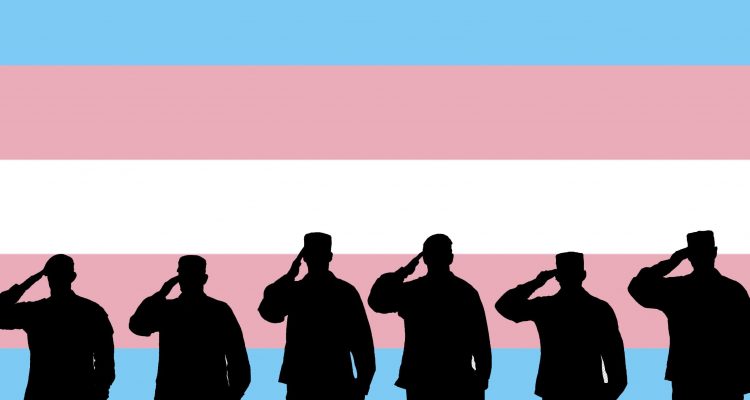Amidst the general divided nature of our current political climate, on Tuesday, Jan. 22, President Donald J. Trump’s administration added yet more fuel to the fire by reviving and succeeding in overriding a policy allowing transgender individuals to serve in the United States military. The New York Times reports that the new policy, “generally prohibits transgender people from military service, but makes exceptions for those already serving openly and those willing to serve ‘in their biological sex.’” It is simply inconceivable how this policy reversal is not being considered a blatant discrimination on the basis of sex, and a direct violation of the rights of thousands of transgender servicepeople to be equally protected under the law.
One aspect of the administration’s release of the policy that struck me most was the allowance of those to serve who were willing to do so “in their biological sex.” If the initial knife to the stomach was reintroducing this policy, this concession was the additional twist. While not every transgender individual makes the choice to physically transition, choosing instead to identify by pronouns that are typically not associated with their biological appearance, that choice of pronouns is essential to their identity. The connotation of serving “in their biological sex” not only takes away options of physically transitioning, but also of being referred to by the pronoun that matches their identity. This policy traps transgender individuals in an identity, and often in a body, that is simply not their own.
Much of the cruelty of this policy comes from a blatant ignorance of what the trans experience is like. I myself, as a cisgender person, don’t claim to be an expert, but I have at the very least attempted to learn more about and understand challenges faced by trans people. A very apt and compelling explanation of this experience was articulated in a recent blog post, with the original poster explaining, “A cis woman tries to understand transness by going, ‘what if I felt like/wanted to be a man’ when she should be approaching it as “what if I, a woman, was so easily mistaken for a man that I had to pretend to be one.’” I believe this explanation made the experience click for me a little more than it had previously. Many, including myself, often see trans people as individuals with a choice and a change to make, something that just happens on a given day. Rather, trans people are already whole and already know themselves completely. It is society around them that perpetuate their invisibility, who cannot see them as they see themselves. Not only that, but as the post describes, this perpetuates a culture which tells trans people that they have to hide, that they have to feel uncomfortable in their own bodies and that to not do so is shameful.
I’m infuriated, but hardly surprised that this administration revived this policy. While it demonstrates their ignorance of trans people, it also highlights the obvious fact inherent in everything they do: they simply don’t care. There are nearly 15,000 transgender individuals actively serving our country who are brave enough to enter into a service that protects our safety while also weathering this vile discrimination. This measure not only traps current military personnel who have yet to come out or have newly done so, but disrespects the veterans who have already served and may be attempting to do so again. This administration, headed by a man who has pushed for this policy before and whose vice president has demonstrated time and again an unabashed hatred towards LGBTQ+ people, cannot be allowed to blanket their bigotry under the guise of national security. Just as the proposal of the wall at the Mexican border is a symbol of Trump’s racism, his insistence on this ban is a clear manifestation of his transphobia.


Leave a Reply